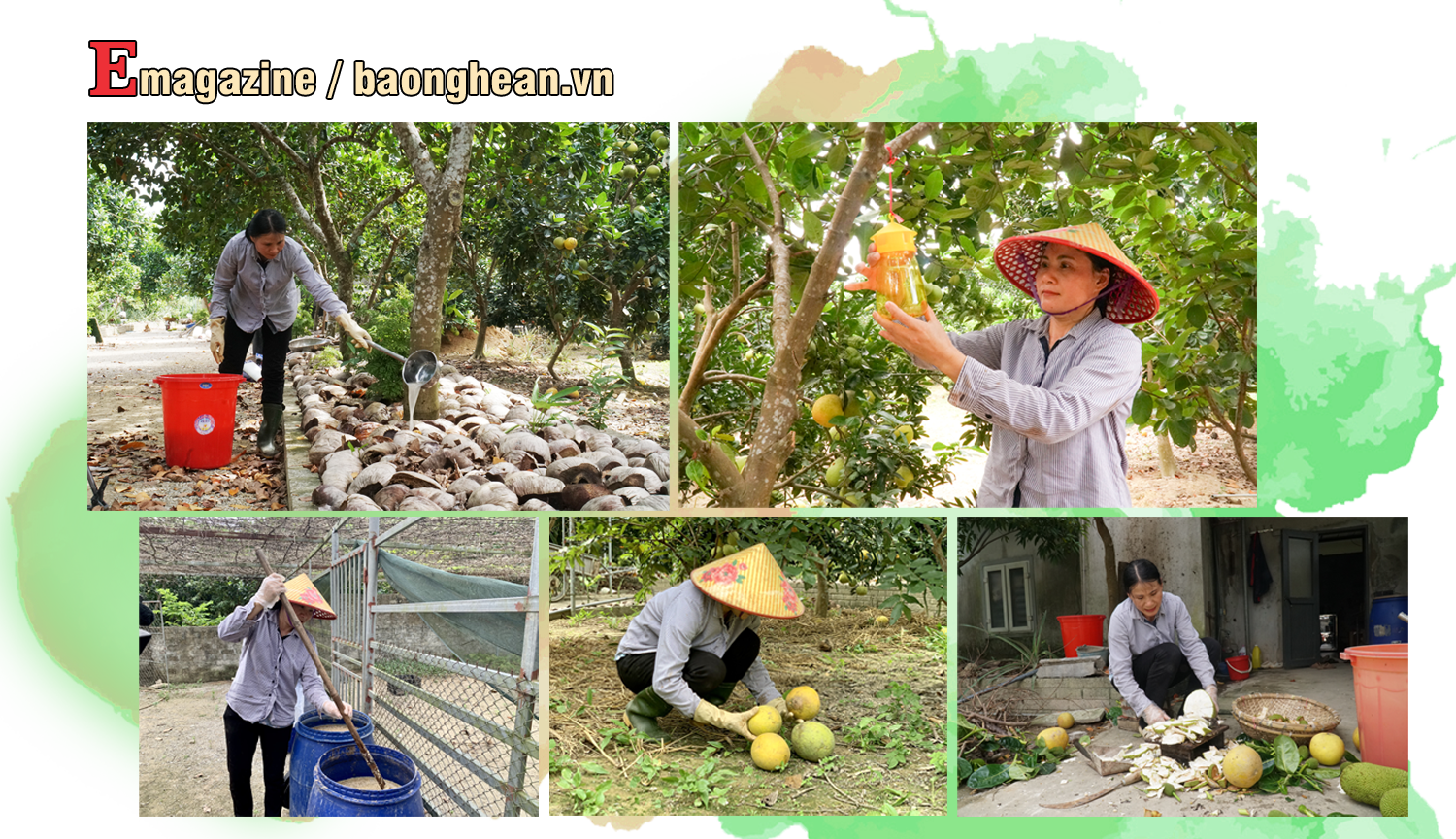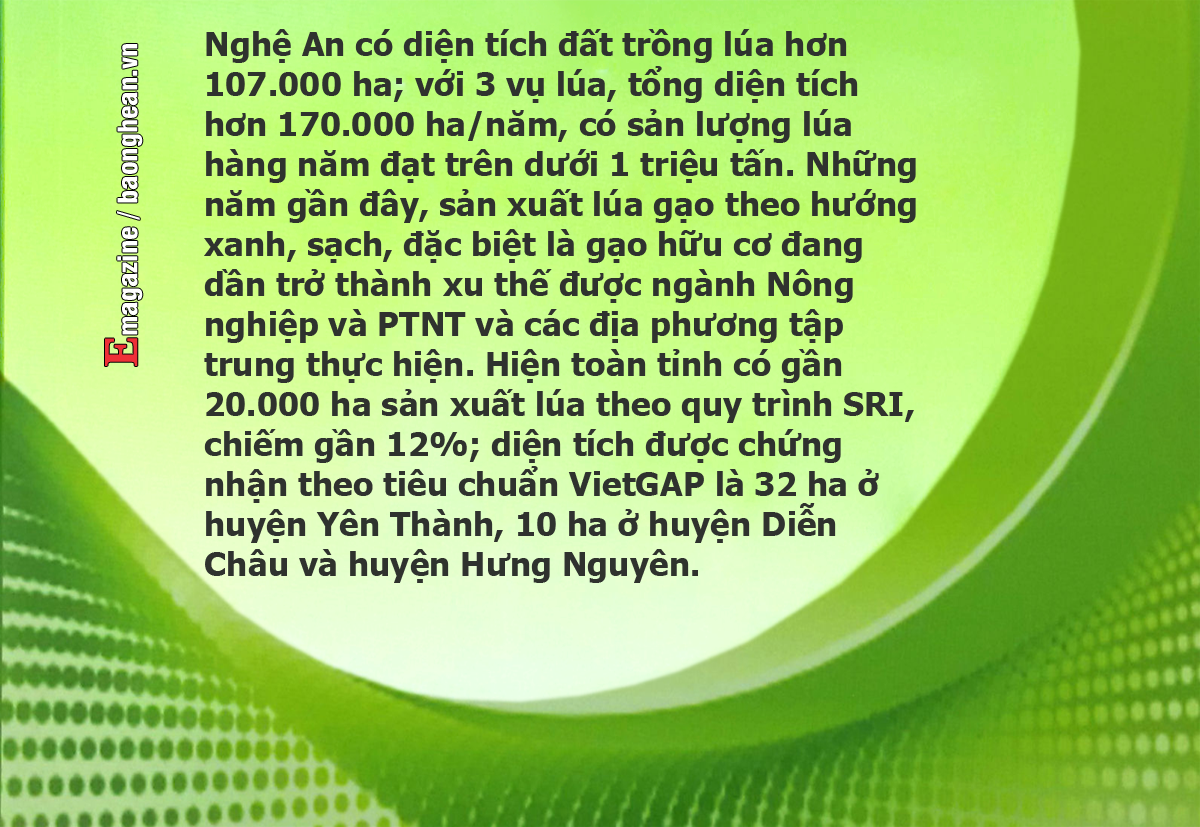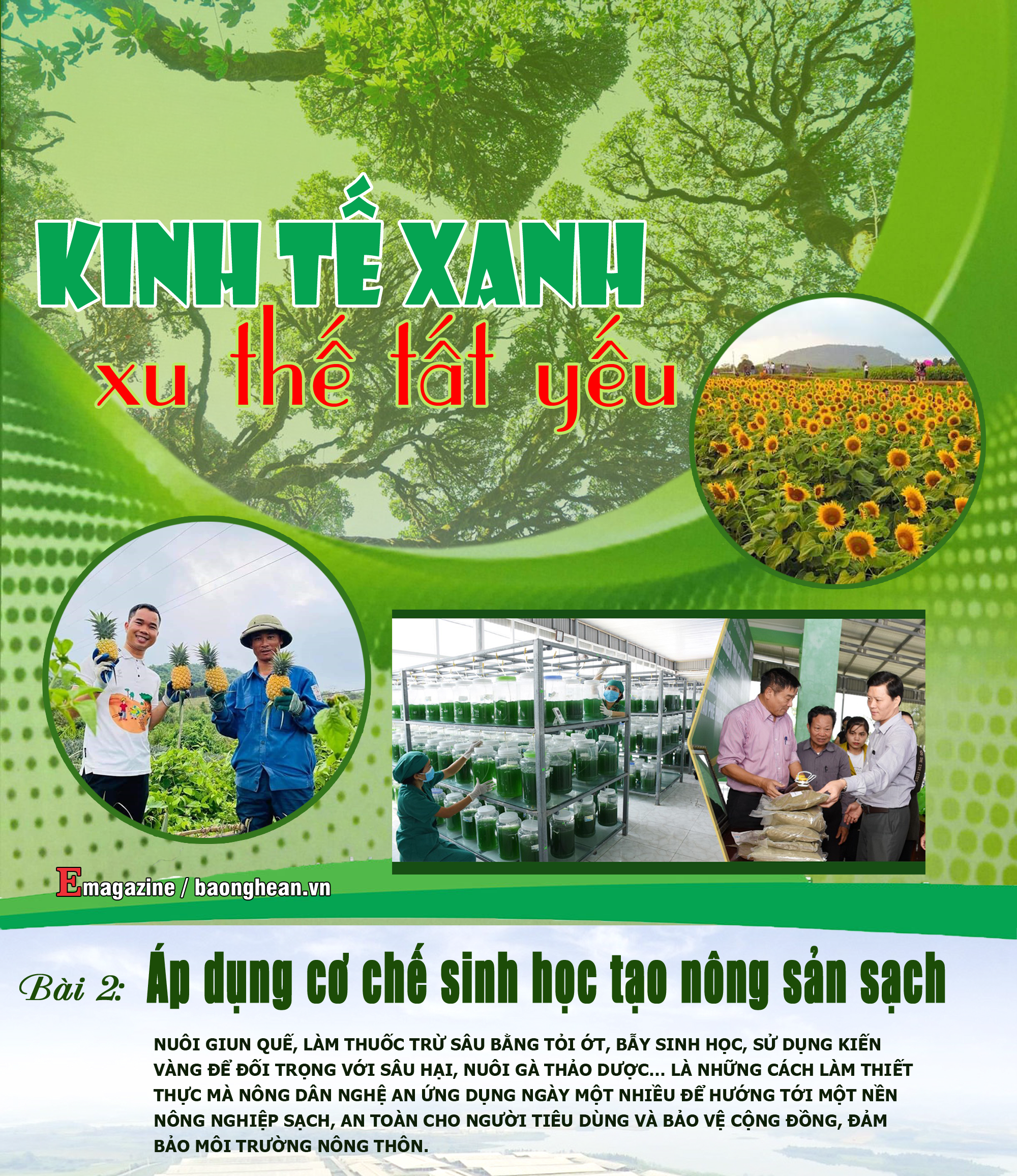

Mr. Duong Van Tu in Thanh Lam commune (Thanh Chuong) in the process of installing equipment and electrical system for a pig farm in the area saw the problem that was causing headaches not only for that farm owner but also for many other farms; that is the problem of handling a huge amount of waste every day from a herd of thousands of pigs. “On average, each year, the farm's pigs discharge about 600 tons of waste. Although the farm has invested in a treatment system using a filter tank, through a regulating lake, it is still not thorough. The stench affects the environment, the operating cost is expensive, and it is often overloaded,” Mr. Duong Van Tu shared.
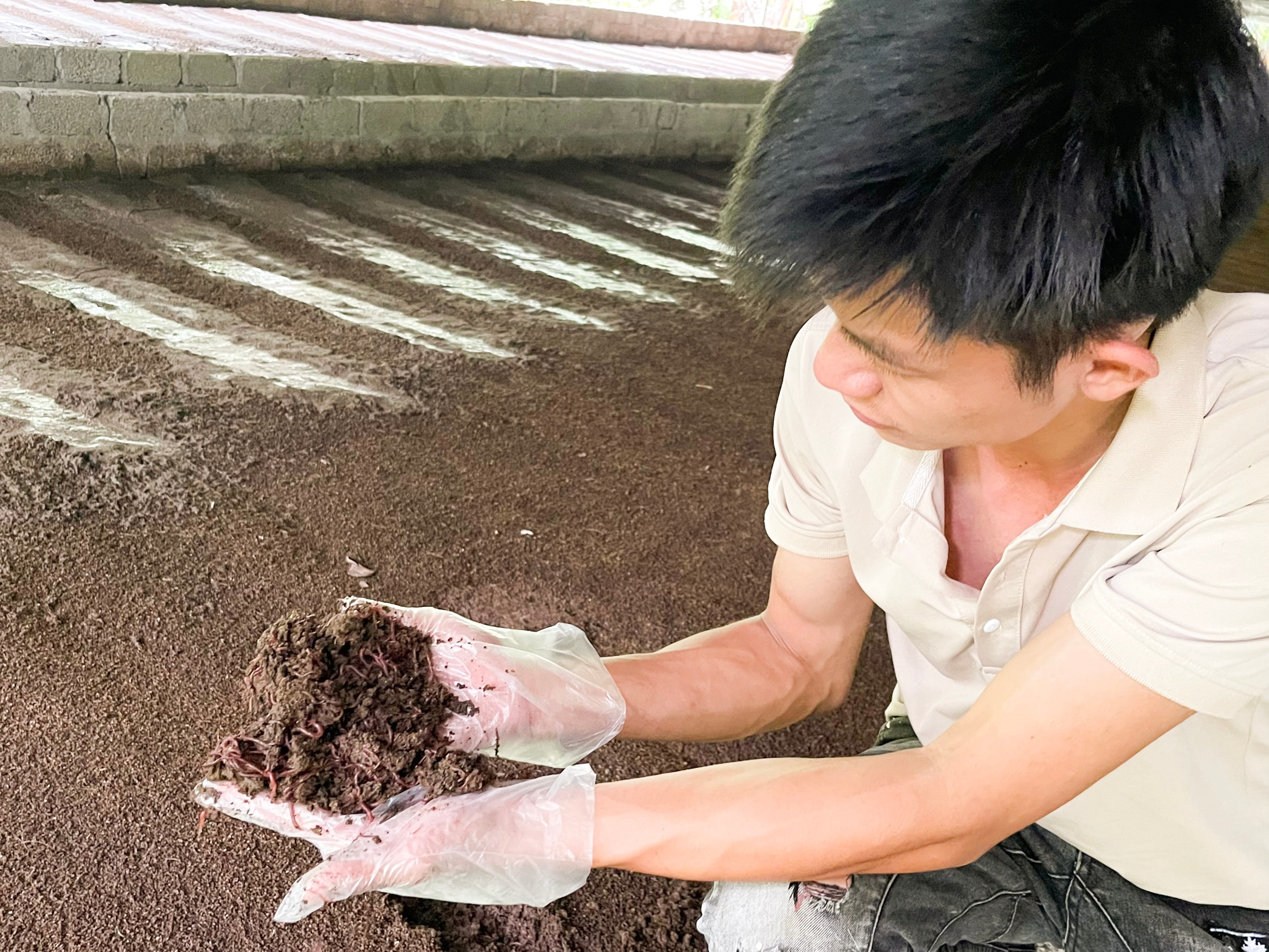
Mr. Tu added that he had discussed and cooperated with a pig farm of over 5,000 pigs to build a system to treat pig waste by raising earthworms. In 2020, the system began to operate, and he also started releasing the first batches of earthworms. Waste from the pig herd, after being collected and filtered, will be transferred directly to the soaking and treatment tank, and the pig waste will be mixed with water and pumped directly to raise earthworms.
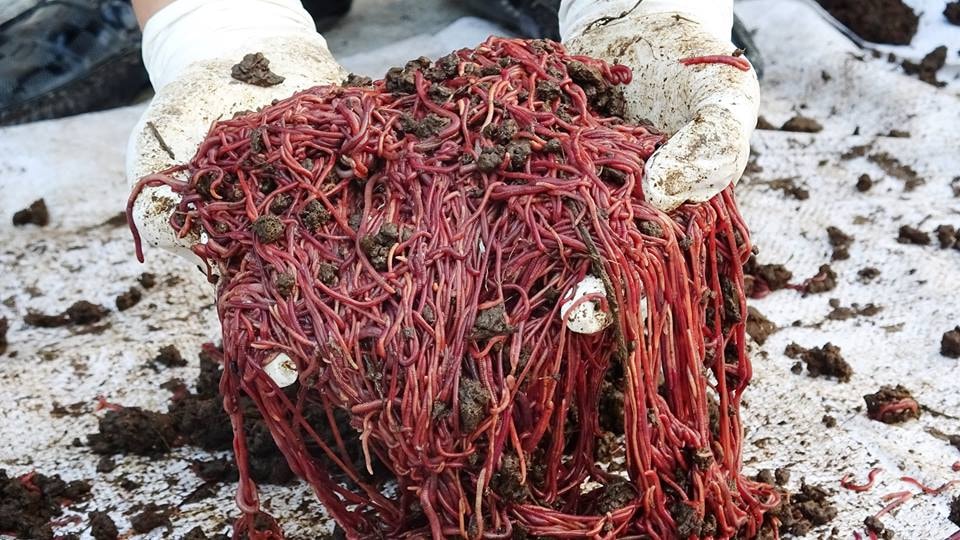
Currently, each year, the farm produces about 10 tons of worms and 300 tons of manure; earthworms are processed into earthworm juice to make foliar fertilizer for plants or added to animal feed, many people come to buy it to make food for eels, chickens, and fish; manure from earthworms is also very popular, especially used in clean flower and fruit gardens. With the current price of 45,000 - 50,000 VND/kg of earthworms, 3,500 VND/kg of manure, each year the farm earns about 1 billion VND.
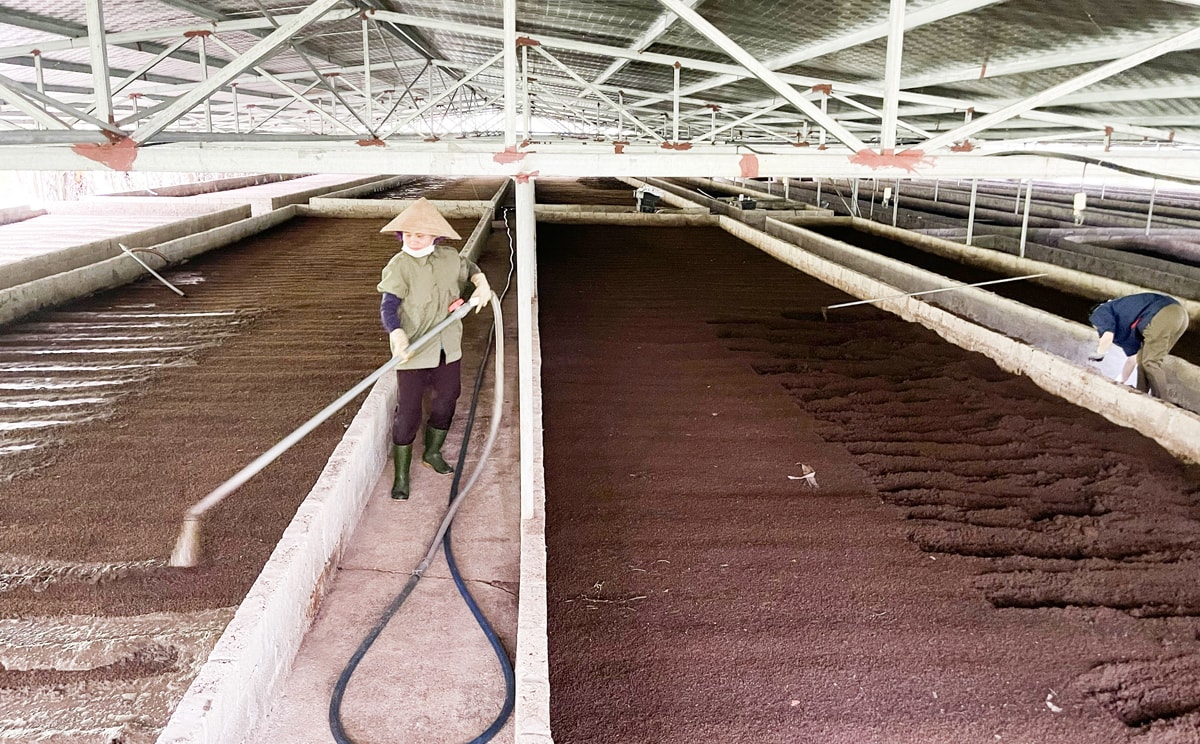
Mr. Tu also cooperated with other livestock farms in the area to deploy earthworm farming; transferring the technology of processing livestock waste into earthworms to hundreds of farms, households and livestock households. According to Mr. Thai Van Toan - Chairman of Thanh Lam Commune Farmers' Association, from this model, people in the area have learned how to utilize livestock and poultry waste to raise earthworms, bringing both economic efficiency and an important contribution to environmental protection.
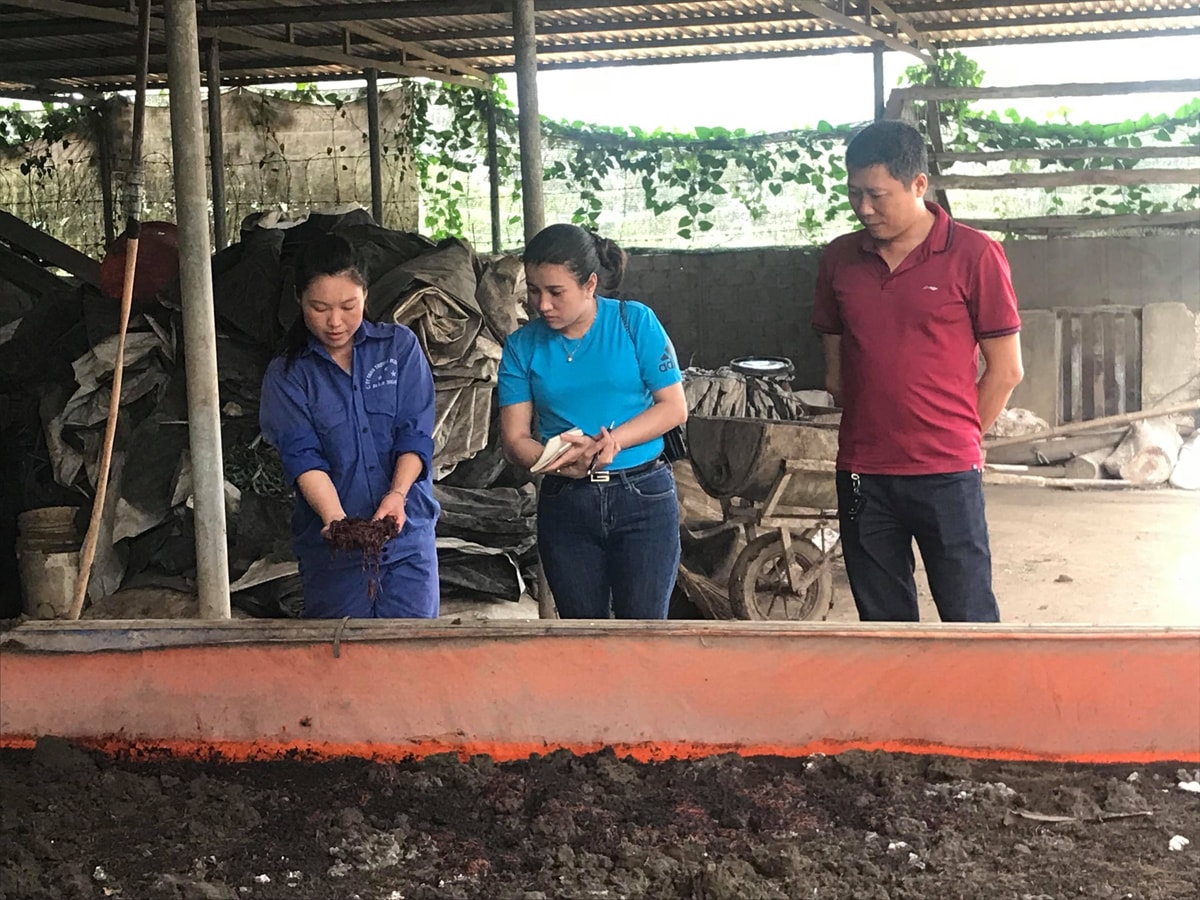
These days, after selling 200kg of eels, Mr. Tran Van Hien's family in Hamlet 9, Tru Son Commune (Do Luong) is also focusing on building, roofing, and sealing tanks to raise earthworms and continuing to expand the scale of mud-free eel farming with food sources from earthworm farming. In tanks built about 30cm high, carefully covered to prevent insects from eating the worms, and because earthworms also love the dark, the worms stick to the walls and grow very quickly.
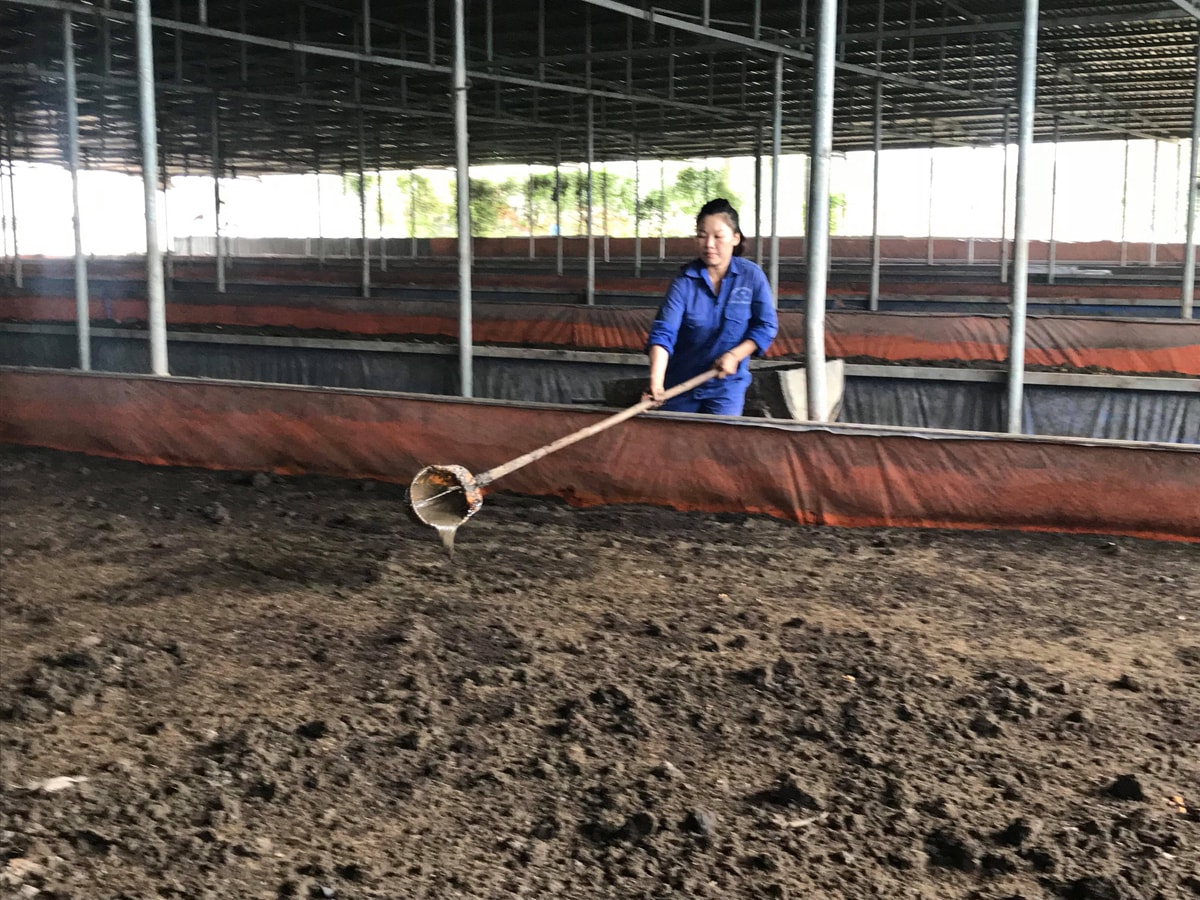
Tru Son is a commune bordering Dai Son commune (Do Luong) - where the buffalo and cow market is one of the largest in the country. Realizing the large source of manure from thousands of buffalo and cows each market session, in 2017, Mr. Hien began to learn how to raise earthworms to make good use of this abundant waste source. After 2 years of "experimental" farming, he expanded the scale of earthworm farming, developing mud-free eel farming. Currently, he collects over 2 tons of bio-fertilizer each month, and harvests about 700 kg of commercial eel each year. From this model, some households in the area have bought biomass of manure and small worms to raise and replicate. Mr. Tran Van Thao - Chairman of the Farmers' Association of Tru Son Commune said: "Tru Son is adjacent to Dai Son Commune where there is a buffalo and cow market. In the area, there are over 100 households trading buffalo and cows, each trip importing 50-70 buffalo and cows/household. Not only developing the economy, turning waste into money, but earthworm farming also contributes significantly to reducing environmental pollution."
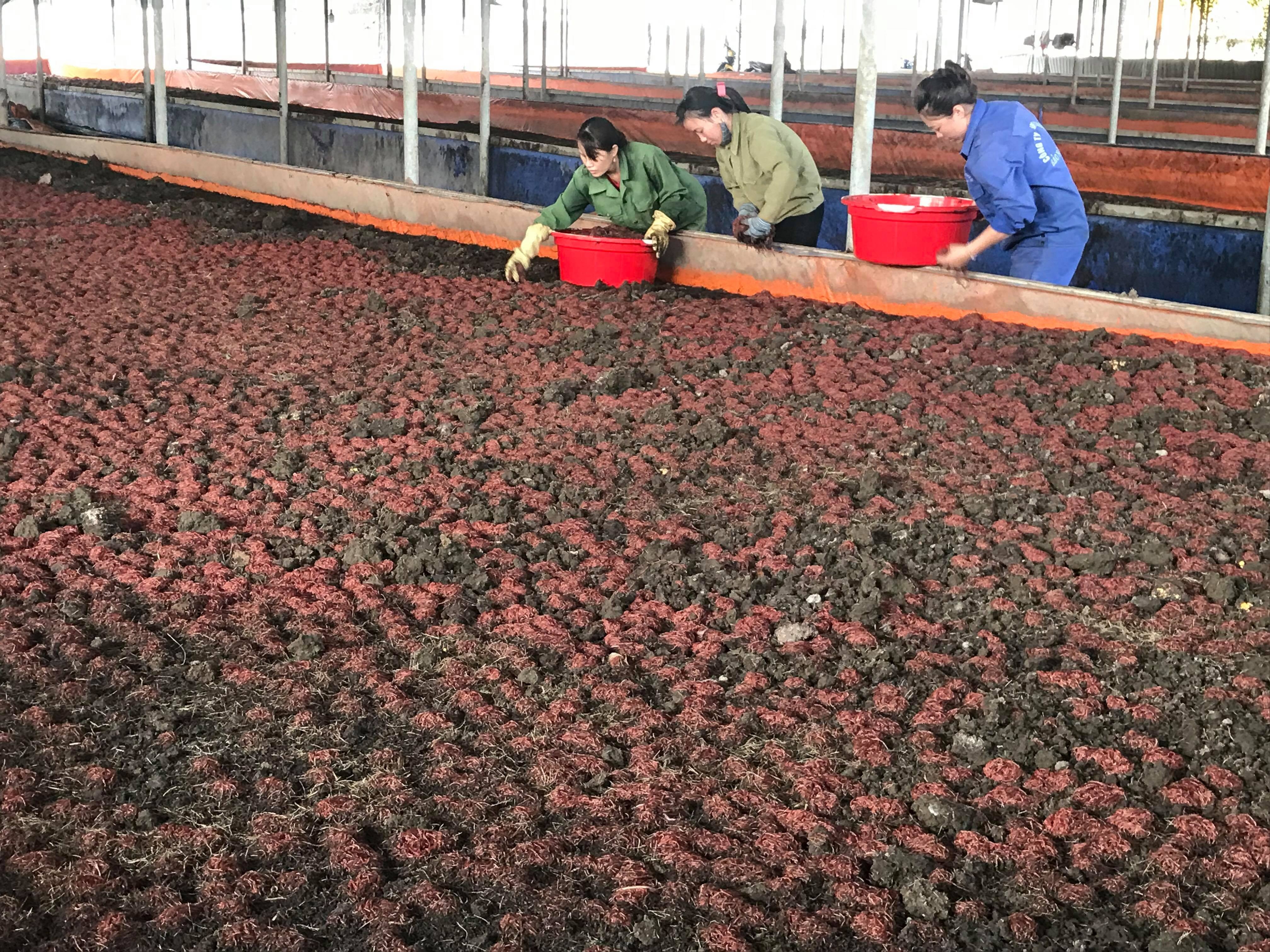
From the assessment of the benefits of earthworm farming, Nghe An Provincial Gardening Association has also accompanied its members to develop and expand this profession in many localities in the province, such as increasing training and instructing people on earthworm farming techniques. Mr. Nguyen The Thang - Chairman of the association shared: "For families raising livestock and poultry, especially buffalo, cow and pig manure, earthworms are biological machines, which help to quickly decompose manure and even water its wastewater on the livestock area, reduce the time for manual composting, and increase crop productivity. Therefore, currently, many households raising livestock and poultry have boldly invested in barns to raise earthworms, most in Thanh Chuong, Dien Chau, Nghia Dan, Quynh Luu, Quy Hop districts, etc. People raise earthworms to take advantage of manure, both for growing crops and earthworms to return to develop livestock, increase nutrition and quality for livestock, in the form of building a circular value chain, then sell livestock products that are both high quality and low investment cost, increase profits, and still ensure the environment".

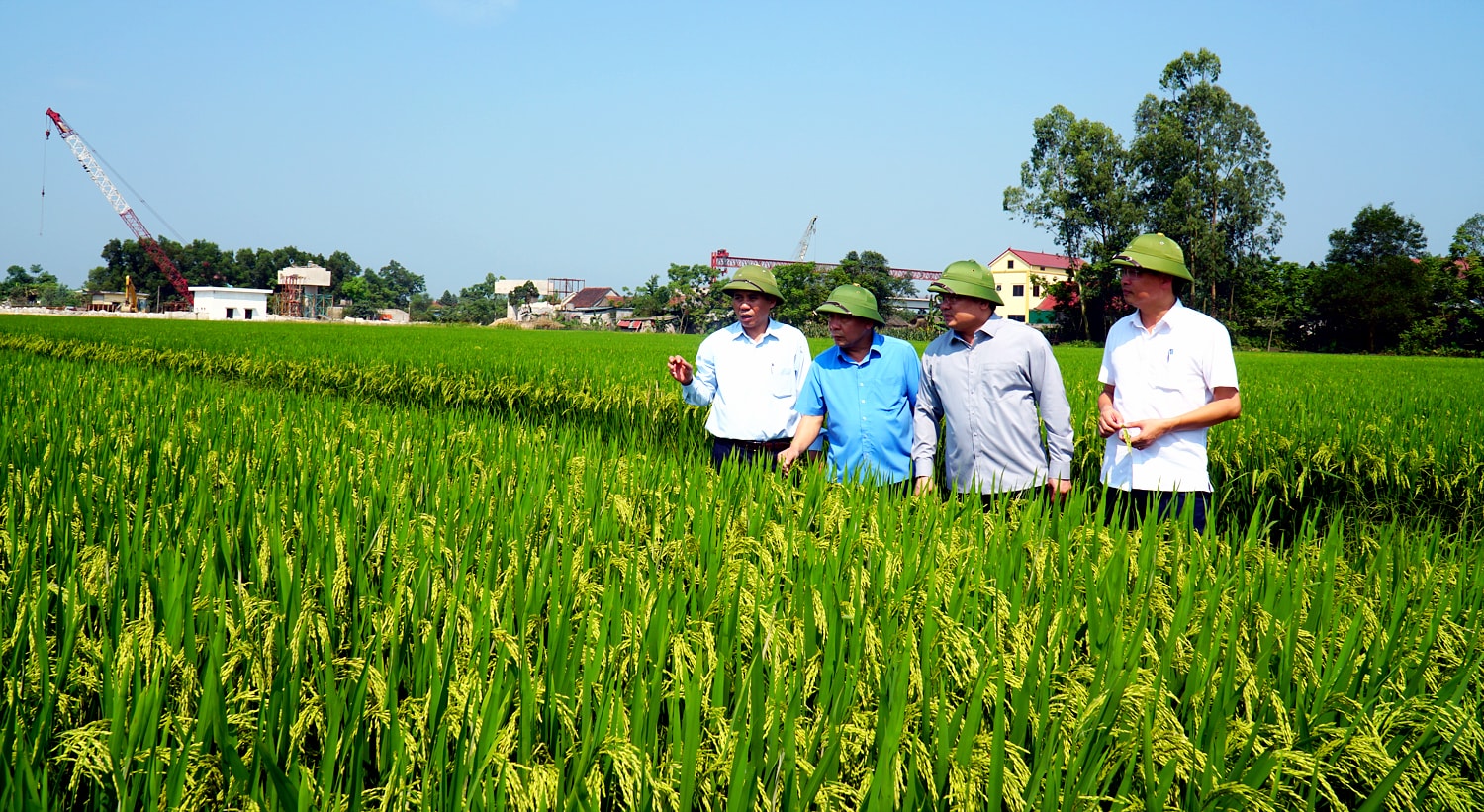
Raising earthworms combined with growing rice is the way of doing things of the people in Chau Nhan commune (Hung Nguyen). On 2 sao of low-lying land in hamlet 8, Chau Nhan commune, Ms. Nguyen Thi Nhan's family still maintains 2 rice crops. The earthworm season starts in November, then from the end of August, after harvesting the rice, she plows and prepares the land to "raise" earthworms, after the earthworm season, she sows spring rice. The difference here is that pesticides are absolutely not used on the rice fields.
“Just a little bit of pesticide is enough to kill all the worms, so for many years, I have not sprayed pesticides at all. Instead, I have researched and used rice varieties that are less susceptible to pests. My family often grows Xi23 rice and uses manure to increase the resistance of the rice plants, but the yield is still high thanks to raising worms,” Ms. Nhan shared.
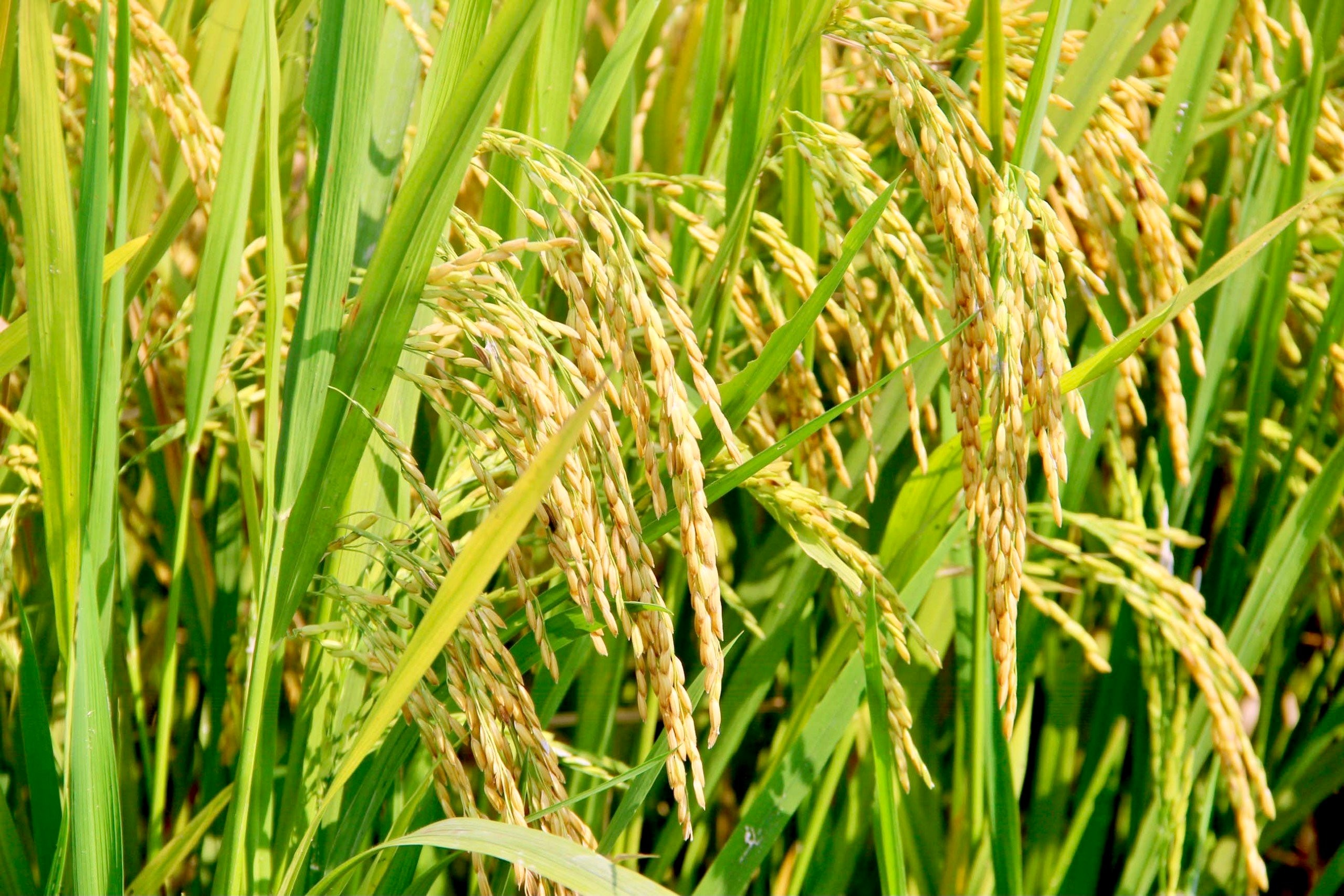
Chau Nhan commune has over 350 hectares of rice fields, of which more than 100 hectares have earthworms - a natural specialty in Nghe An. For many years, in parallel with "raising" earthworms, people have not abandoned 2 rice crops. Mr. Tran Minh Khai - an agricultural officer of the commune said: Although people are still doing it spontaneously based on actual needs, using normal rice varieties like other areas such as Xi23, Bac Thinh... and absolutely do not use pesticides, the productivity is not inferior, the land is more fertile and the rice products are organic. There is not enough rice from the earthworm fields to sell, the price is 2-3 times higher than the market price, all that is sold is sold.
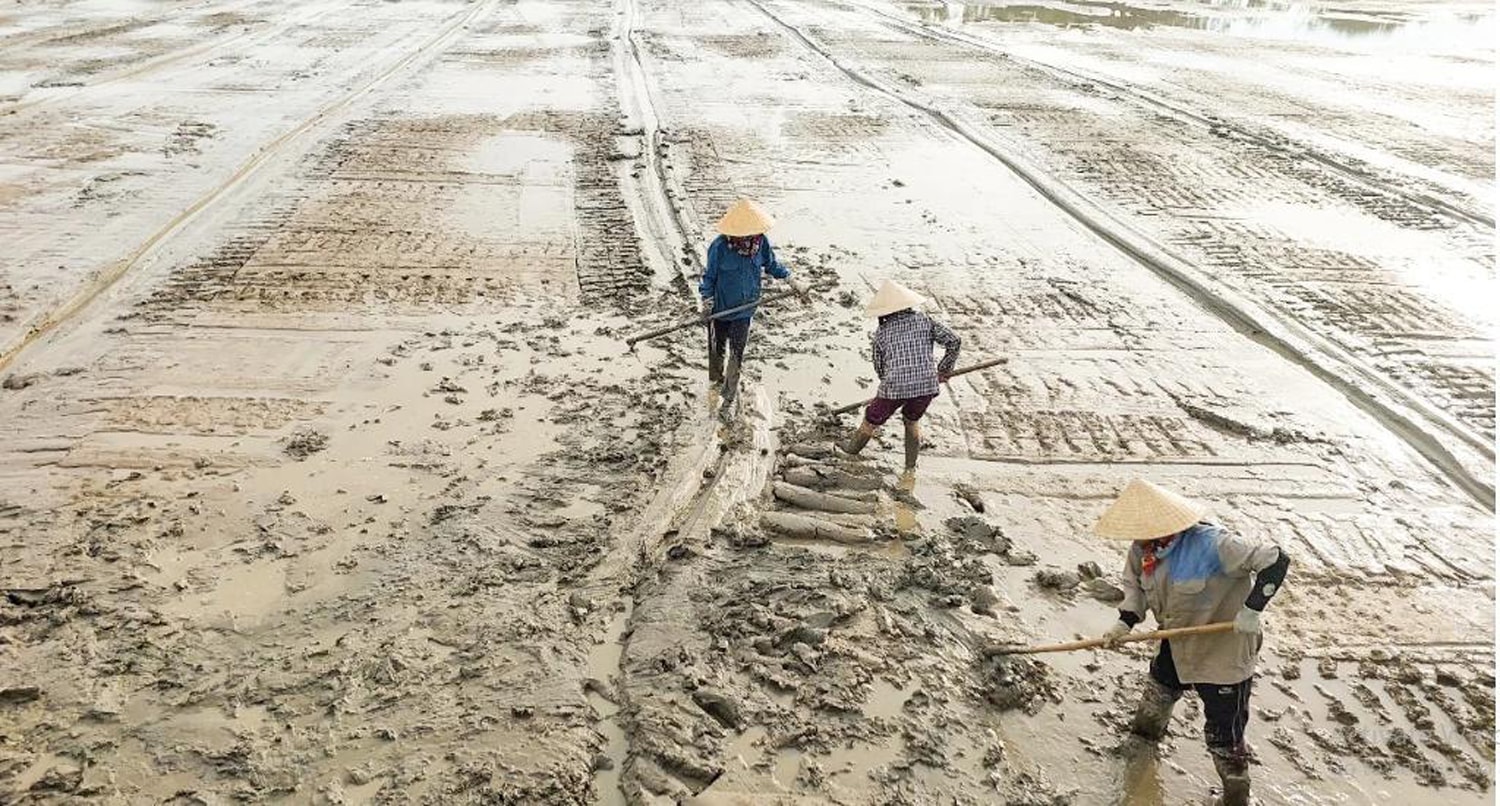
Based on the production reality of the people, starting from the spring crop of 2024, the Department of Science and Technology will deploy the "Project on applying scientific and technological advances, building a model of raising earthworms combined with organic rice cultivation in Hung Nguyen district" with a scale of 3 hectares in Chau Nhan commune. 11 households participating in the project will be supported with 50% of rice seeds, organic fertilizers, and technical training. Mr. Nguyen Quang Huy - Project Manager said: "The areas in the project area will only use organic fertilizers and biological pesticides of herbal origin. After 2 rice crops, we will organize a workshop, evaluate and transfer the results achieved to the locality, and discuss solutions to replicate this model in the area".
For over 2 years now, Yen Thanh district has built a 15-hectare organic rice production model in Van Thanh, Lien Thanh and Minh Thanh communes. After 4 production seasons, the productivity and output are approximately the same as conventional intensive production. With the support of the State, people produce according to standard processes, completely without using chemical pesticides but only using organic fertilizers, manure and microbial fertilizers.
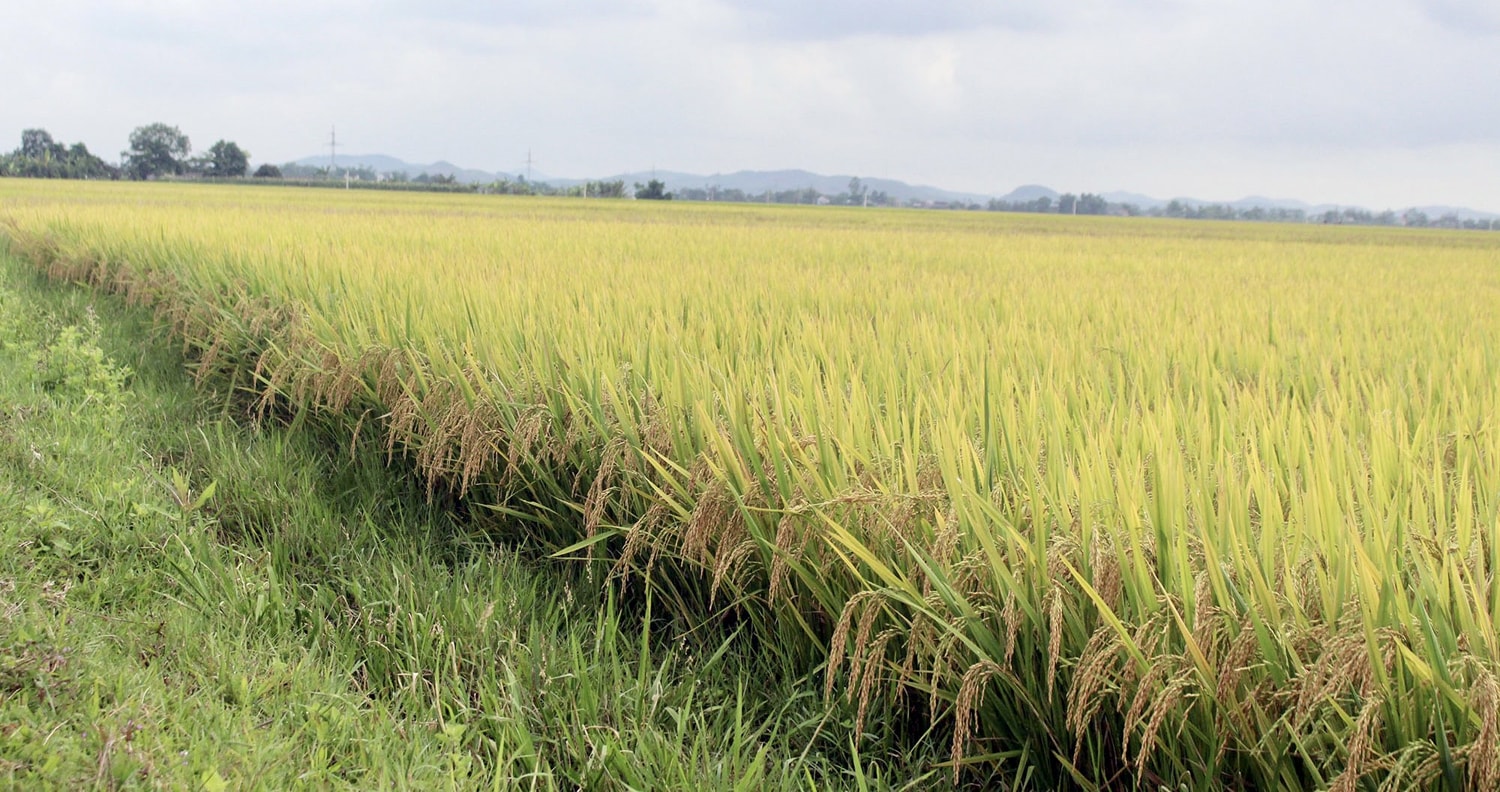
Ms. Le Thi Gia’s family in Hamlet 3, Van Thanh Commune has 7 hectares of grapefruit and jackfruit, with a total of nearly 2,500 trees, and no longer uses any chemical fertilizers or pesticides. Along the corners of the garden are rows of plastic compost bins, coconut husk beds for raising earthworms, and insect-trapping lamps hanging from trees.
“An incident completely changed my way of thinking. After discovering I had thyroid cancer, going to the hospital, seeing so many cancer patients, I no longer wanted to use toxic pesticides,” Ms. Gia shared. So after many nights of arguing and convincing her husband, for nearly 2 years now, they have completely switched to using microbial fertilizers and pesticides. From rotten fruits in the garden, garlic, chili, soybeans, and other available materials, they have successfully created fertilizers and pesticides to take care of their family garden, increasing the variety of microbial fertilizers to inhibit pathogenic fungi, gradually increasing the plants' resistance.
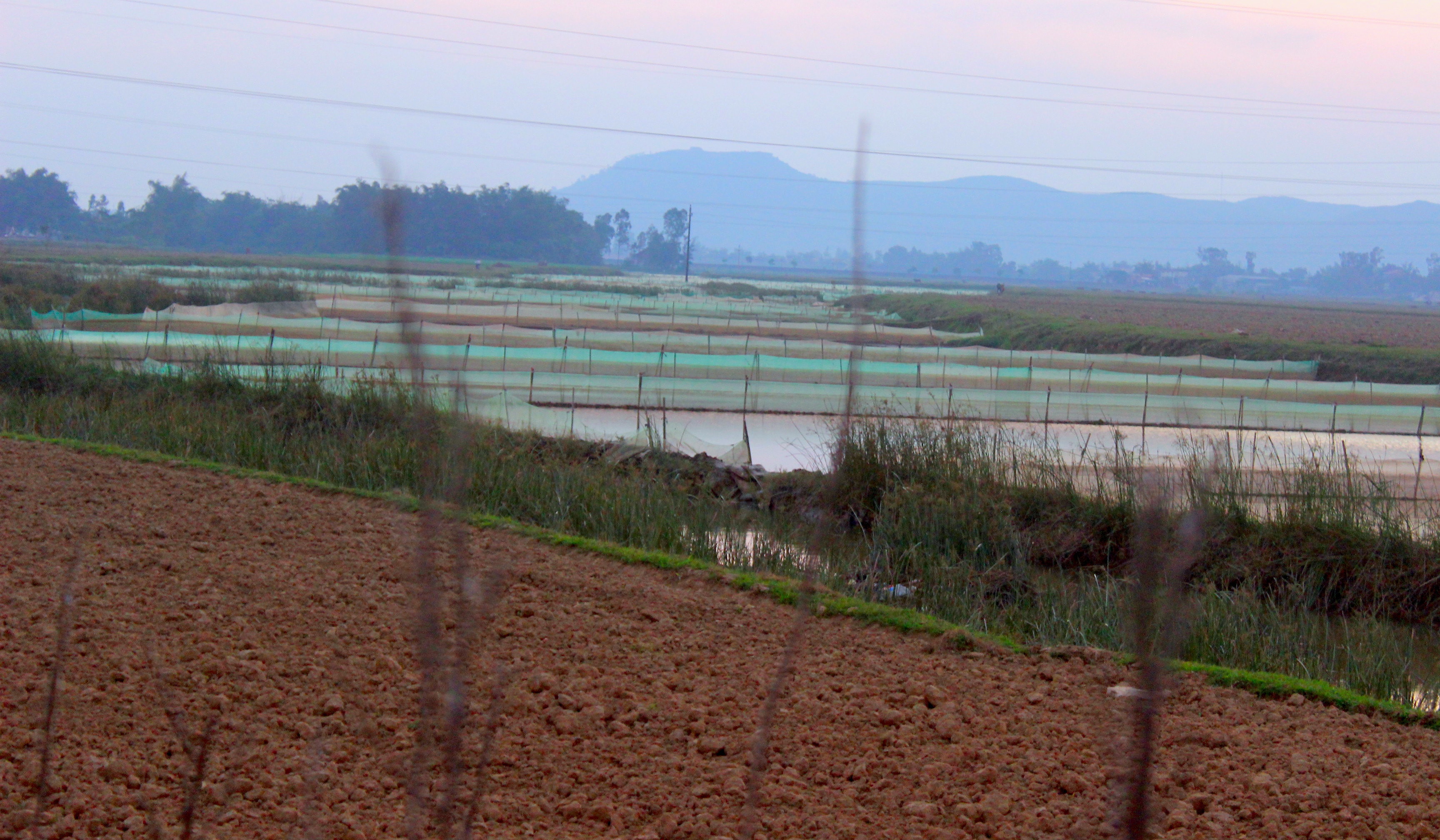
Thanks to the ability to kill both eggs, larvae and adults, the effectiveness of biological drugs lasts longer, the quarantine period is only about 2 days and especially does not pollute the environment or water sources. With the desire to spread this method to many producers, recently, Ms. Le Thi Gia participated in a training course organized by the district, imparting experience to nearly 60 farmers in communes in Yen Thanh district on production methods, use of fertilizers and biological products to control pests and diseases.

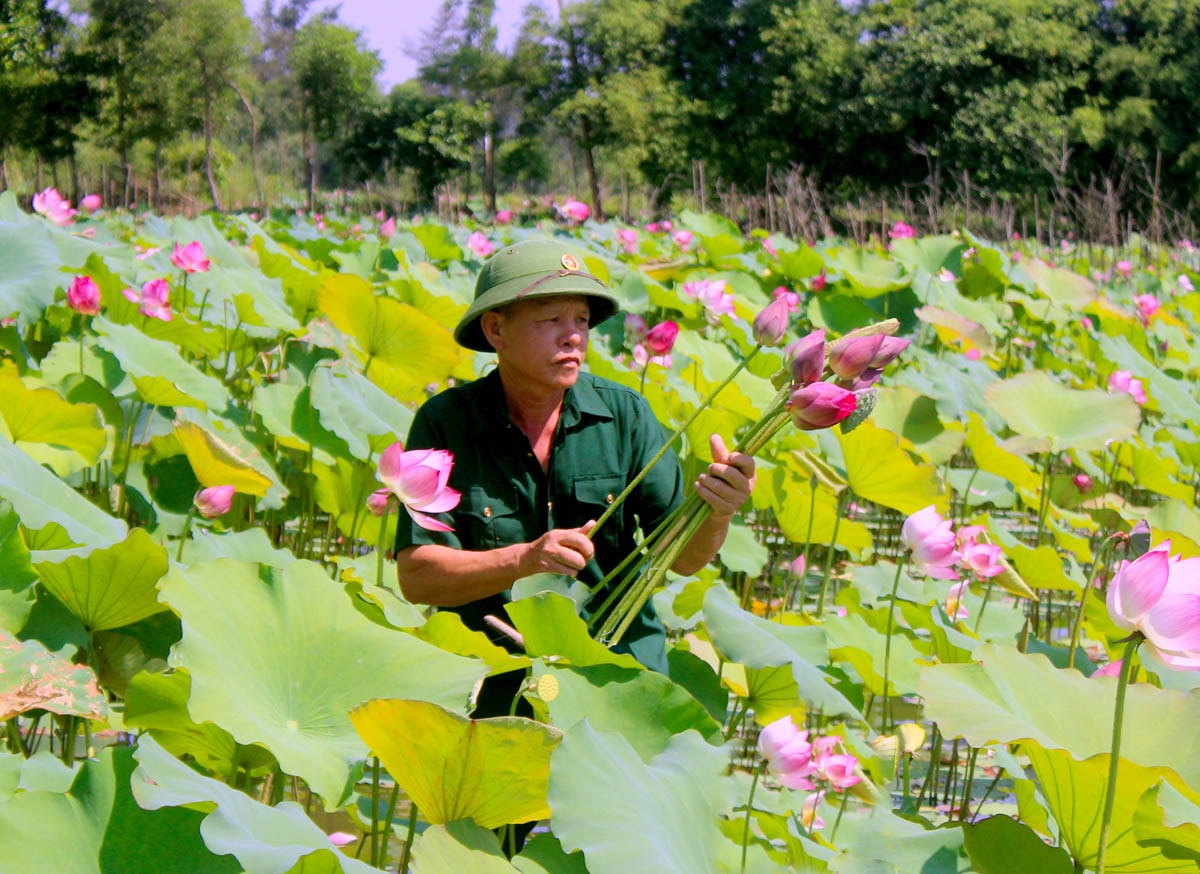
At the provincial level, there are also exciting models: Dien Chau district is testing organic peanut models with guaranteed product consumption. People in Anh Son, Tan Ky, Quynh Luu districts, Hoang Mai town raise herbal chickens, extract garlic, lemongrass, chili as fertilizer to water oranges, grapefruits, melons, vegetables, tubers for high productivity without using chemical fertilizers. Then farmers in Dien Chau district raise crabs in mangrove forests; farmers in Nam Dan district reduce rice acreage and instead use ecological agriculture, farm agriculture with large rose gardens, lotus ponds, and nature reserves; Thanh Chuong district has orange farms using weaver ants to prevent pests... These methods are creating many organic products, beneficial for health; at the same time protecting and balancing the ecosystem.
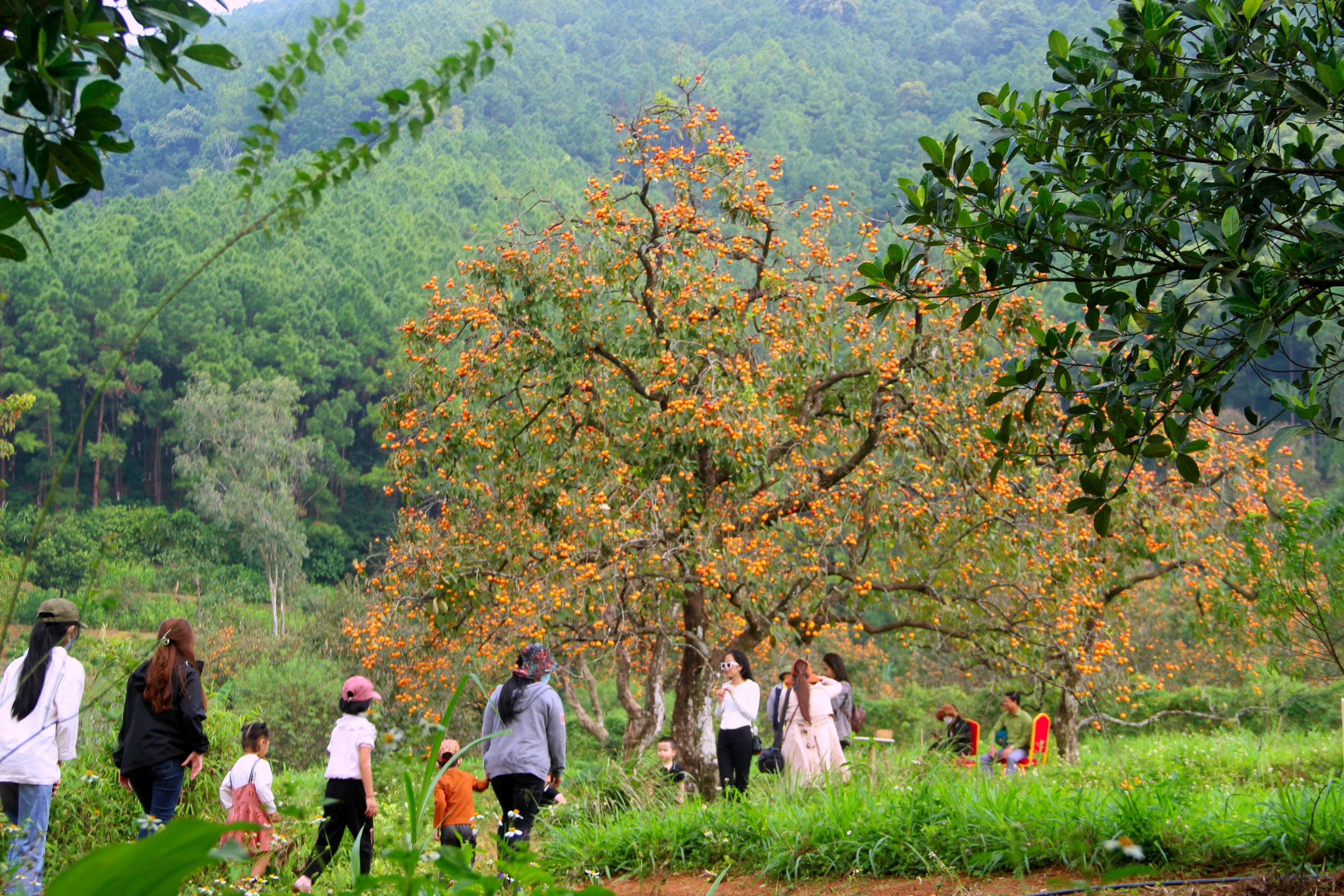
In recent years, implementing the policy of developing agricultural production associated with green growth, Nghe An has implemented many policies and mechanisms to support and encourage individuals and businesses to invest in production development and product consumption linkages. In the province, there have appeared more and more models of industrial use of processing and reusing by-products and waste to create animal feed, grow mushrooms, make industrial raw materials, biogas and organic fertilizers, and reduce greenhouse gas emissions.
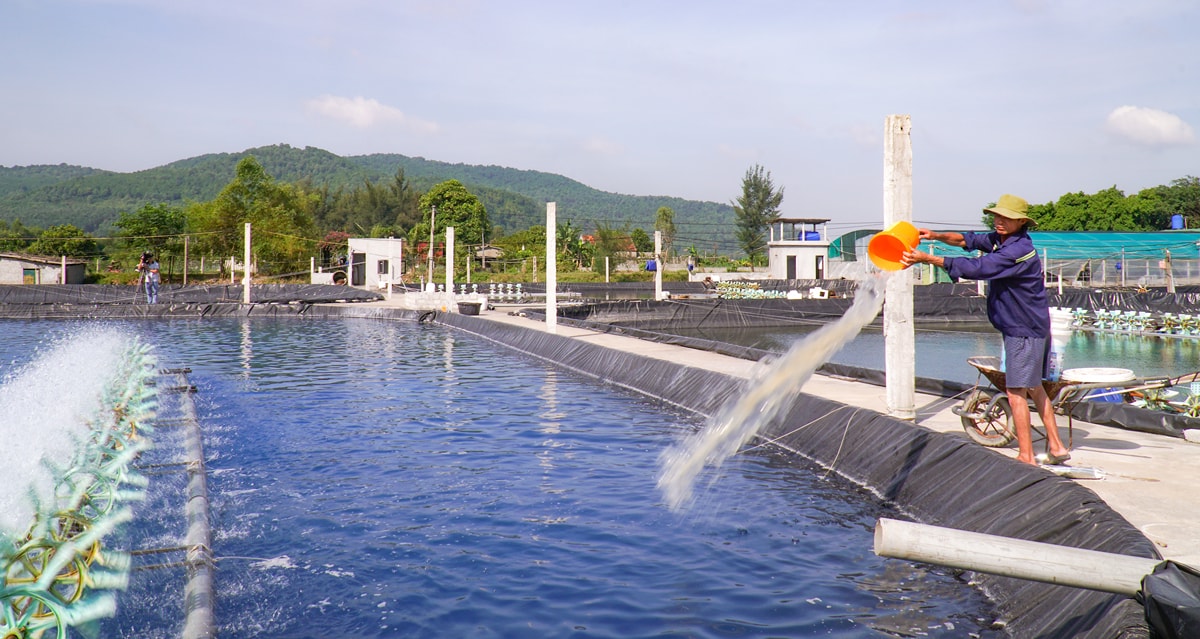
At the same time, from investment sources, the province has also built a sea dyke and planted wave-breaking trees in the Dong Hoi area in Quynh Lap, Quynh Lien communes and Quynh Phuong ward (Hoang Mai town) under the Climate Change Component of the Climate Change Response and Green Growth Program for the period 2016-2020. The application of technology in irrigation has contributed to improving irrigation efficiency and saving water resources, gradually adapting to climate change and drought.
